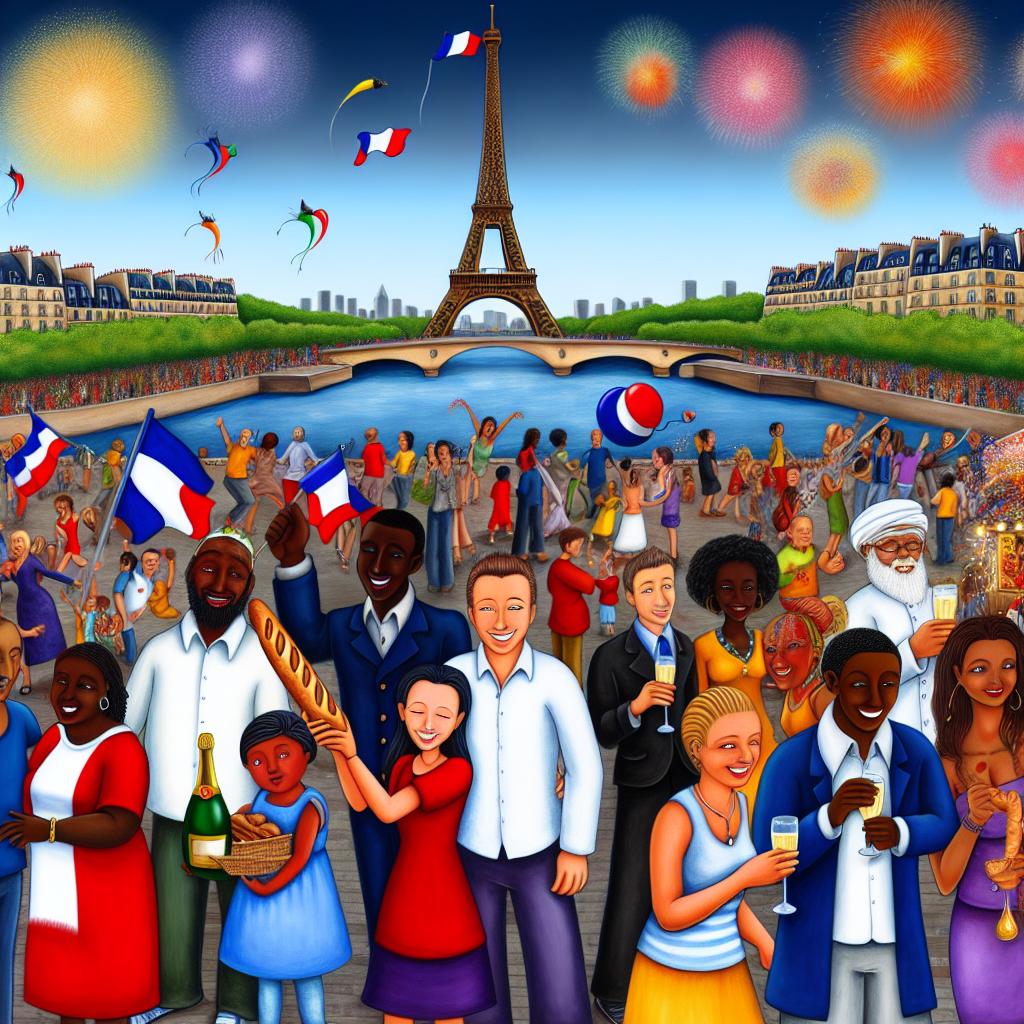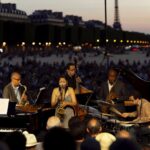Bastille Day Celebrations in Paris: An Overview
Bastille Day, known in France as La Fête Nationale, is celebrated annually on July 14th. This day commemorates the storming of the Bastille prison in 1789, a pivotal event that heralded the outset of the French Revolution. It is a national holiday, marked by various activities, festivities, and events across Paris, attracting both locals and tourists who are eager to partake in the celebrations.
The Parade on the Champs-Élysées
One of the most iconic events of Bastille Day in Paris is the military parade conducted on the Champs-Élysées. Originating at the Arc de Triomphe and advancing towards the Place de la Concorde, this parade has been a tradition since 1880. It showcases military units from the French Army, Navy, and Air Force, alongside invited troops from allied nations. This spectacular display of military prowess and coordination attracts thousands of onlookers.
The parade is not merely a display of military might but also a demonstration of national pride. The presence of high-ranking officials, including the President of France, adds political significance to the event. Music bands of the various armed forces, mounted troops, and aerial displays contribute to the grand spectacle.
For more information about this historical event, you can explore the official site of the French Ministry of Defense at www.defense.gouv.fr. Here, you will find detailed information about the participating units, historical significance, and logistics of the event.
Fireworks Display at the Eiffel Tower
As the evening sets in, the ambience of Paris changes distinctly with the breathtaking fireworks display near the Eiffel Tower. This event marks a fitting end to the day’s celebrations. The fireworks, synchronized beautifully with music, create a mesmerising experience, captivating the spectators. The skies of Paris light up with vibrant colors, and the dazzling display casts its glow over the Seine, creating reflections that enrich the visual feast.
The fireworks are strategically designed not only to enthrall but also to convey themes of unity and national pride, often accompanied by classical and contemporary French music. Attendees usually flock to areas like the Champ de Mars and Trocadéro for the best views, although vantage points can be found throughout the city.
For visitors looking for details on event timings and the best viewing spots, the Paris Tourist Information site provides reliable information and tips.
Public Gatherings and Cultural Events
Paris becomes a hub of public gatherings and cultural events as residents and visitors alike immerse themselves in Bastille Day’s festive spirit. The city hosts an array of concerts, dances, and parties in public spaces, depictive of both traditional and modern facets of French culture.
Local fire stations organize bal des pompiers, translating to firefighter’s balls, which are free community dance events held in the evenings. These events have gained popularity over the years and are characterized by lively music, dancing, and a sense of community camaraderie. Residents and tourists alike join in the celebrations that often continue late into the night.
In addition to these communal gatherings, various museums and cultural institutions offer free or discounted entry on Bastille Day. This initiative encourages people to explore French history and art, providing an educational facet to the day’s events.
Impact on Traffic and Public Transport
Bastille Day brings changes to normal urban transit routines in Paris. With several streets closed to accommodate parades and public events, vehicular traffic often faces congestion. As such, it is advisable for both residents and visitors to utilize public transportation.
The Paris Metro and RER trains offer extended services throughout the day, allowing for convenient city navigation. These services are adapted to accommodate increased passenger volumes, ensuring that mobility remains efficient amidst the celebrations. A visitor to the city can rely on the city’s comprehensive transport network to traverse the festive landscape with relative ease.
For updated information about transit schedules and street closures, it is beneficial to check official transport sites or mobile applications offering real-time navigation assistance.
A Day of Celebration and Historical Reflection
Bastille Day stands as a vital embodiment of national identity for the French Republic, emphasizing a celebration that prompts reflection on its revolutionary origins. It underscores the trifold values of liberty, equality, and fraternity that the revolution endeavored to enshrine, motivating citizens to reflect on their past while celebrating their shared heritage.
Engaging with Bastille Day, one encounters a fusion of festivities that invite participants to ponder upon fundamental democratic values. The commemoration of the revolution plays an instructional role, reminding individuals of their collective history and the enduring significance of these ideals in contemporary France.
For those interested in delving deeper into the historical and cultural nuances of Bastille Day, abundant resources are accessible through cultural websites and French historical archives such as www.culture.gouv.fr. These resources offer extensive insights into the day’s background, enriching one’s understanding of its lasting impact.
In conclusion, Bastille Day stands as a vibrant celebration that amalgamates the essence of French history, culture, and communal spirit. The day invites participants to partake in a shared reflection of their nation’s revolutionary past while living the joy and camaraderie of its present, thus crafting an enduring annual tradition that weaves together festivities and history in the heart of Paris.









